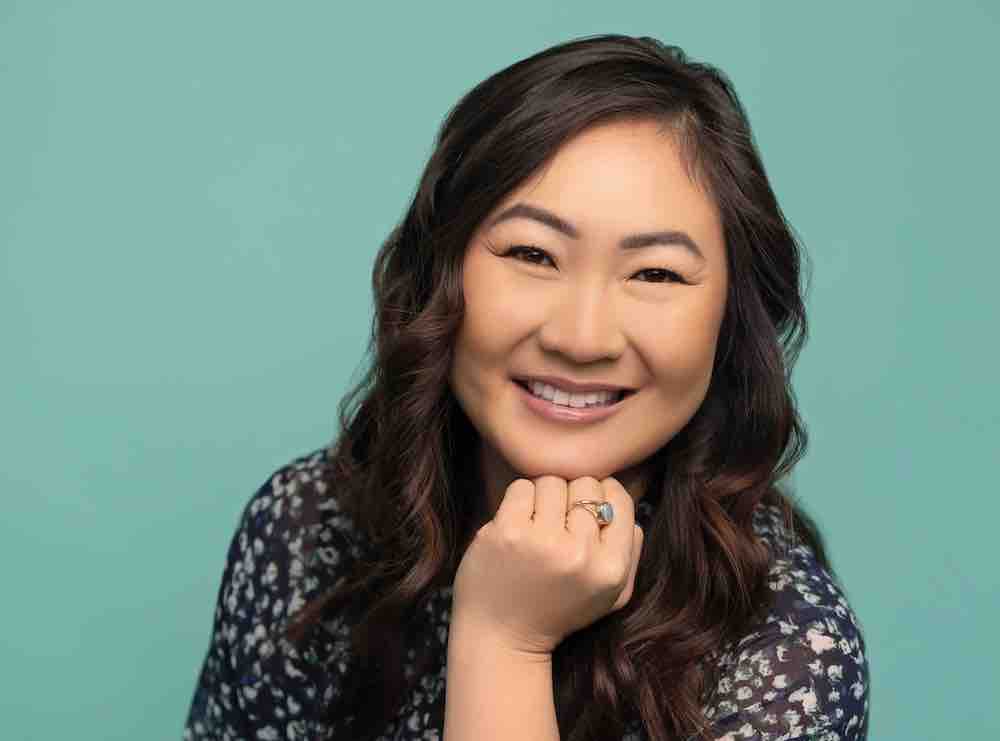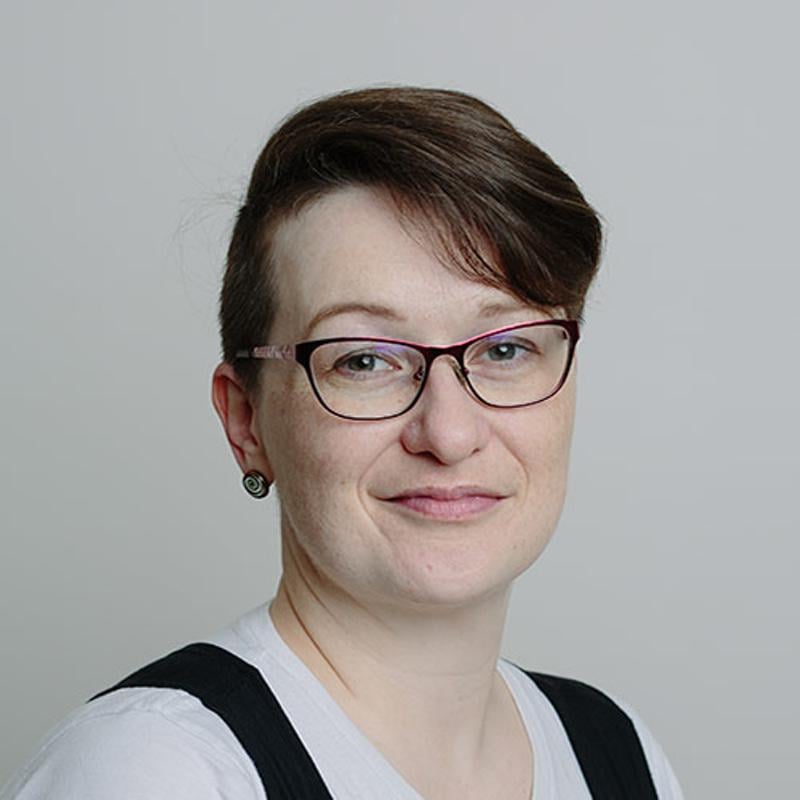Eight years ago, Marissa Boyle’s newborn daughter was diagnosed with moderate hearing loss. Her diagnosis changed to profound hearing loss by age two, and she received cochlear implants shortly before turning three.
From infancy until she turned six, Boyle’s daughter had adequate access to a speech language pathologist, who helped develop her language and communication skills, through a local Campbell River program that provides developmental support for Indigenous children.
Last year, thanks to a family connection, Boyle’s daughter, now eight years old, was able to see a private SLP regularly. It was important for her to have access to that care. Because she didn’t receive cochlear implants until she was almost three years old, her speech is impacted to this day, Boyle noted.
Her daughter’s speech illustrates the importance of early interventions for children with hearing loss, and the lasting consequences of their lack — something Boyle and her daughter continue to live and struggle with.
“She doesn’t fully have sentences; she uses the main words in her point,” Boyle said. “So, for instance, ‘I’m going to go to the store,’ she’ll say, ‘I go store.’”
The private speech language pathologist that Boyle’s daughter started seeing through a family connection has since moved away, leaving just two private-practice SLPs to serve Campbell River. Boyle’s child is on wait-lists to see both of them.
The school district works with five speech language pathologists, two of whom work full time, but Boyle’s daughter gets to see a district SLP only three times a month.
Audiologists and speech language pathologists support people who have trouble hearing or with communication. Audiologists work with people with hearing loss and issues that are rooted in the ear, such as balance problems or tinnitus. Speech language pathologists work with people having trouble with language, speaking and swallowing.
Three visits per month with an SLP is not close to enough, Boyle said, adding a past specialist advised that her daughter should see a speech language pathologist twice a week “for her to be able to catch up with her peers.”
Boyle’s daughter also sees an audiologist at BC Children’s Hospital in Vancouver, an overnight trip for the family. But when her regular audiologist left the position over a year ago, her daughter’s appointments were decreased from once every six months to once a year.
Struggles communicating with her peers, friends and teachers at school have made her daughter increasingly frustrated, Boyle said. She often gets into fights with her peers as a result.
“She gets very violent when we can’t understand her, and she also will get violent with her brother,” Boyle said. Her daughter is now in Grade 3, an age where the developmental gaps between children can become more painfully apparent than before. Boyle said she can see her daughter falling further behind her peers and continuing to have anger issues if her support needs aren’t met.
A lack of SLPs and audiologists across the province
Becca Yu remembers hearing about a shortage of speech language pathologists and audiologists in B.C. when she was a student in the only provincial post-secondary speech language pathologist program over a decade ago.
“In terms of public health audiology, I’m hearing from families there’s a six-month to a year wait sometimes for that followup to see how their child’s hearing is,” said Yu, now a practising speech language pathologist and president of Speech and Hearing BC, a non-profit professional association for SLPs and audiologists.
“If a two-year-old can’t hear and they’re waiting until they’re three, that’s a big chunk of time in a child’s life that they may be missing out on cues and social engagement because they’re not able to hear to the best of their abilities.”
Kids like Boyle’s daughter who aren’t receiving adequate support for their hearing loss are at risk of loneliness and isolation from their peers, Yu said, as well as difficulty communicating, difficulty learning in school and frustration with these barriers.
Last month Speech and Hearing BC put out a press release decrying the lack of SLPs and audiologists in the province, alleging British Columbia is falling behind other provinces in making these services accessible.
It was not the first time the organization has called on the province to train and hire more professionals to decrease wait-lists that are months, sometimes years, long. When the delays are experienced by children in their key mental, physical and social developmental years, the impacts can be felt well into adulthood.
“We really do need to do something about it,” Yu said.
“It’s not a quick fix in order to get things done. So we are in communication with government to try to solve the issue.”

25 SLPs for every 100,000 British Columbians
There are several reasons behind the ongoing shortage, said Yu.
The number of student seats available at the school of audiology and speech sciences at the University of British Columbia — 36 for speech language pathology and 12 for audiology — hasn’t kept pace with community need for these services, she said.
“As our population grows, that number does not appear to be keeping up with what we need in terms of services in the province,” Yu said, adding the aging population has also meant an increase in adults needing access to both speech language pathologists and audiologists.
With the only B.C. training program for both professions based in Vancouver, it’s also difficult to attract would-be students from more rural and northern communities to the program, she added.
The increasing cost of living is another factor, with wages for audiologists and speech language pathologists not keeping up with inflation here, Yu said, adding some professionals are leaving B.C. for less expensive provinces.
Other provinces are experiencing SLP and audiologist shortages, too, she said. Compared with Alberta, however, which has 32 speech language pathologists per 100,000 people, B.C. has only 25 SLPs per 100,000 people.
Yu said B.C. has one of the best infant hearing programs in the country, with all children born here having their hearing tested within weeks of their birth, and a support program available for infants experiencing hearing loss.
The bigger issue is access for kids and adults who develop hearing issues later in life, she said.
The costs of continuing to fall behind
Bowen Tang, who has profound hearing loss and a cochlear implant, was a deaf and hard of hearing teacher in the Lower Mainland for six years until he left his job in education for another opportunity in 2021.
In his experience students may have access to deaf and hard of hearing teachers in school, but his caseload as such a teacher was high. And not all deaf and hard of hearing teachers can provide the same services an SLP can, he noted, including diagnostic assessment of a child’s language abilities.
“If the child really needs that language intervention, then not having an SLP means that the child is not going to be able to meet the target for their language development and be able to catch up with their peers,” Tang said, adding writing skills can also be impacted by language development delay.
“That’s why when we advocate for an SLP, we want to at least request that an SLP do an assessment of the language, if they’re not able to do any ongoing intervention services.”
Any student with a language delay of at least one year behind their developmental stage needs to see a speech language pathologist, Tang said. If students continue to fall behind, he added, it could reduce their future employment opportunities in adulthood.
The long road to a complicated fix
Families can access funding for speech language pathologists and audiologists in B.C. through the At Home program for kids with complex medical issues, or provincial support for children with an autism diagnosis or who were adopted in B.C.
School districts often employ their own speech language pathologists to work with students, and there are publicly funded audiology clinics families can access in B.C., too.
But wait-lists to see a public professional can be months to years long. Families have the option to pay out of pocket for private audiologist or SLP services, where fees run over $100 per hour.
Speech and Hearing BC wants the government to increase the number of audiology and speech language pathology student seats in the province, including providing options for rural and remote students to learn in or closer to their home communities.
“We need more positions out there, but we may not have the professionals to fill those positions. So we need recruitment and retention strategies to be able to then bring in those professionals,” Yu said.
Boyle would like her daughter to see the audiologist more often, but that also means more travel costs and more unpaid time off work for Boyle, who must accompany her daughter to Vancouver for the appointment.
“I receive less money on my paycheque, and usually I have to bring someone else with me, too, because I have to bring my four-year-old,” Boyle said.
“Then they have to either take time off work or take time away from their family, because I can’t have [the four-year-old] in the appointment and I can’t leave him at home.”
A shorter-term solution for increasing the number of SLPs and audiologists would be faster recognition of internationally trained professionals, like the province is already doing for doctors, she said. Yu has heard from internationally trained audiologists and speech language pathologists that they are required to submit the syllabuses for each course they took in their post-secondary program, in order to receive a B.C. licence.
“If you’ve been practising for 25 years, sometimes that can be difficult to be able to have access to [courses] that were done 25 years ago,” she said.
Even SLPs and audiologists trained in other provinces must obtain a B.C. licence to work here. While she appreciates that provincial licensing helps protect the public by ensuring professionals have adequate training, Yu would like to see the provinces work together towards a national licensing that would make interprovincial transfers easier.
Three different provincial ministries are involved in speech and hearing services for kids and youth in B.C.
The Ministry of Children and Family Development provides funding for speech language pathologists for kids with complex medical issues and disabilities who are enrolled in its At Home program, and for kids with an autism diagnosis.
The Ministry of Post-Secondary Education and Future Skills is responsible for the number of audiologist and speech language pathologist graduate student seats in B.C.
The Ministry of Health superintends the Health Professions Act that governs audiologist and SLP practice in B.C., and the Ministry of Education provides districts with funding for kids with certain disabilities, which districts can use to hire SLPs to support their students.
The Tyee reached out to all four ministries for comment on the ongoing shortage of SLPs and audiologists in B.C.
A Health Ministry spokesperson responded with an emailed statement noting that the health and post-secondary education ministries have been working together on an expansion of all health-related post-secondary training in the province, which was approved in the 2021 provincial budget.
“This work includes a one-time expansion of two seats for Speech Language Pathology students at the University of British Columbia starting September 2023 and a permanent expansion of eight SLP seats beginning in 2024, bringing the annual intake from 36 to 44,” the statement read.
Tang would like to see B.C. adopt a protocol that would see every child diagnosed with hearing loss assessed by a speech language pathologist at least every three years. Ideally this would start between grades 3 and 4, he added, as students’ learning becomes more academic in Grade 4.
“I’m also mindful of how high the caseloads are for SLPs in general,” he said. “So it’s always good to start small with three-year assessments, and then see if we could move it up to every year, in an ideal scenario.”
Boyle’s daughter is scheduled for an upgrade to her cochlear implants soon, which will improve her hearing. But she will still need language support.
“I see her falling behind. She’s getting to the critical age before middle school,” Boyle said.
“I would ideally like her to have the ability to have fairly fulsome conversations with people before that, because peers and that relationship-building is very important for kids.” ![]()
Read more: Health, Education, BC Politics

















Tyee Commenting Guidelines
Comments that violate guidelines risk being deleted, and violations may result in a temporary or permanent user ban. Maintain the spirit of good conversation to stay in the discussion and be patient with moderators. Comments are reviewed regularly but not in real time.
Do:
Do not: